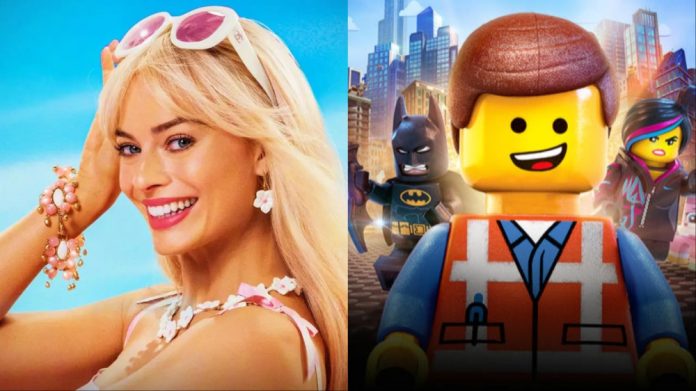In a recent interview with Rolling Stone, Randall Park highlighted a prevalent problem in Hollywood — the industry’s frequent misinterpretation of blockbuster successes.
Park was discussing Greta Gerwig‘s Barbie, which grossed more than $1.4 billion globally on its way to an all-but-assured Best Picture nomination, and he pressed the industry to internalize a crucial lesson rather than simply applaud the film’s financial feat — the significance of diversity and inclusivity in filmmaking.
Park’s critique mirrors Hollywood’s struggle to learn from its triumphs. The colossal triumph of Barbie led some to oversimplify it as a template for other toy-based movies, but Park’s counterargument delves deeper, underscoring the urgency of prioritizing diverse, empowering narratives.
This leads us to the aftermath of Barbie‘s overwhelming success. Now that the WGA strike is all but officially over, Mattel will surely start to prioritize a sequel led by Margot Robbie, and possibly a spinoff or two starring Ryan Gosling and other Kens. However, this franchise expansion is fraught with potential challenges reminiscent of The Lego Movie, which spawned two spinoffs and a sequel that served as the culmination of the toymaker’s cinematic effort. But as the Lego universe expanded, it struggled to replicate the genuine charm that characterized the original 2014 movie, and as we know, diminishing financial returns spell doom for any franchise, no matter how creative.
The Lego Movie grossed $468 million worldwide in 2014, and its 2019 sequel, The Lego Movie 2: The Second Part, took in only $199 million worldwide — a brick, indeed. The writing was likely on the wall in 2017, when The Lego Batman Movie took in $312 in February, while The Lego Ninjago Movie grossed $123 million worldwide just seven months later, illustrating the sheer power of “Batman” in a title. The latter film wound up losing money for the studio, halting any further IP-branded spinoffs in their tracks.
Seeing as how the franchise quickly lost momentum, Warner Bros. let its Lego deal expire, allowing Universal to pick up the film rights in 2020. The studio’s five-year deal hasn’t yielded any movies yet, let alone official announcements regarding the Lego projects that are in development.
Like Phil Lord and Chris Miller, the creative minds behind the Lego franchise, Greta Gerwig is a visionary filmmaker with a distinctive creative style of her own that is characterized by wit, creativity, and depth. And like Lord and Miller, Gerwig is all but destined to face the pitfalls of the industry — everyone wants to be in business with her, but not everyone is ready to give up creative control. On Barbie, Mattel ceded just that to Gerwig, and the company was handsomely rewarded for the trust and faith it had in her.
This is one of the lessons that Hollywood must learn — to let the creatives actually be creative and stay out of their way. But Mattel should also look to Lego franchise to navigate the foreign terrain of film franchise expansion, for there are valuable lessons to be learned from where that franchise went wrong. The key lies in finding a delicate balance between extending the Barbie universe and preserving the enchanting essence that captivated audiences in the original film. Oversaturation poses a significant risk to the franchise’s longevity, potentially eroding what made the first movie special, and thus a global hit.
Under Gerwig’s creative direction, Barbie resonated with audiences worldwide, but you have to leave them wanting more, as audience fatigue will only backfire and dilute the brand’s core appeal. We’ve already seen that happen with certain franchises that have churned out a never-ending stream of TV series that both complement big-screen features and simultaneously make them less of an event.
Thus, Mattel must exercise caution in its marketing and distribution strategies, avoiding a rapid series of sequels and spinoffs. Instead, the company should focus on a well-planned release schedule that allows audiences to savor each installment while maintaining excitement for the next. And before the company gets ahead of itself, it needs to lock down Gerwig now for the sequel. She’ll demand top dollar and she’ll be worth every penny.
Barbie wasn’t a hit simply because it was based on the world’s most popular toy. It boasted intricate storytelling featuring character development and themes of empowerment. As Mattel embarks on an expansion of the franchise, it is crucial to preserve those elements while staying true to the doll’s foundational principles.
After all, Gerwig’s film stands as a shining example of the importance of crafting narratives that embrace diverse perspectives and empower marginalized voices — and a great dance number never hurts, either.



